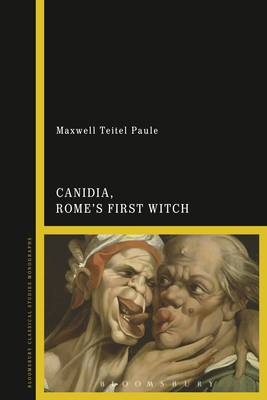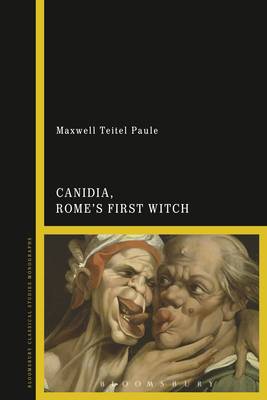
Bedankt voor het vertrouwen het afgelopen jaar! Om jou te bedanken bieden we GRATIS verzending (in België) aan op alles gedurende de hele maand januari.
- Afhalen na 1 uur in een winkel met voorraad
- In januari gratis thuislevering in België
- Ruim aanbod met 7 miljoen producten
Bedankt voor het vertrouwen het afgelopen jaar! Om jou te bedanken bieden we GRATIS verzending (in België) aan op alles gedurende de hele maand januari.
- Afhalen na 1 uur in een winkel met voorraad
- In januari gratis thuislevering in België
- Ruim aanbod met 7 miljoen producten
Zoeken
Omschrijving
Canidia is one of the most well-attested witches in Latin literature. She appears in no fewer than six of Horace's poems, three of which she has a prominent role in. Throughout Horace's Epodes and Satires she perpetrates acts of grave desecration, kidnapping, murder, magical torture and poisoning. She invades the gardens of Horace's literary patron Maecenas, rips apart a lamb with her teeth, starves a Roman child to death, and threatens to unnaturally prolong Horace's life to keep him in a state of perpetual torment. She can be seen as an anti-muse: Horace repeatedly sets her in opposition to his literary patron, casts her as the personification of his iambic poetry, and gives her the surprising honor of concluding not only his Epodes but also his second book of Satires.
This volume is the first comprehensive treatment of Canidia. It offers translations of each of the three poems which feature Canidia as a main character as well as the relevant portions from the other three poems in which Canidia plays a minor role. These translations are accompanied by extensive analysis of Canidia's part in each piece that takes into account not only the poems' literary contexts but their magico-religious details.
This volume is the first comprehensive treatment of Canidia. It offers translations of each of the three poems which feature Canidia as a main character as well as the relevant portions from the other three poems in which Canidia plays a minor role. These translations are accompanied by extensive analysis of Canidia's part in each piece that takes into account not only the poems' literary contexts but their magico-religious details.
Specificaties
Betrokkenen
- Auteur(s):
- Uitgeverij:
Inhoud
- Aantal bladzijden:
- 232
- Taal:
- Engels
Eigenschappen
- Productcode (EAN):
- 9781350080805
- Verschijningsdatum:
- 23/08/2018
- Uitvoering:
- Paperback
- Formaat:
- Trade paperback (VS)
- Afmetingen:
- 156 mm x 234 mm
- Gewicht:
- 326 g

Alleen bij Standaard Boekhandel
+ 162 punten op je klantenkaart van Standaard Boekhandel
Beoordelingen
We publiceren alleen reviews die voldoen aan de voorwaarden voor reviews. Bekijk onze voorwaarden voor reviews.









